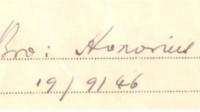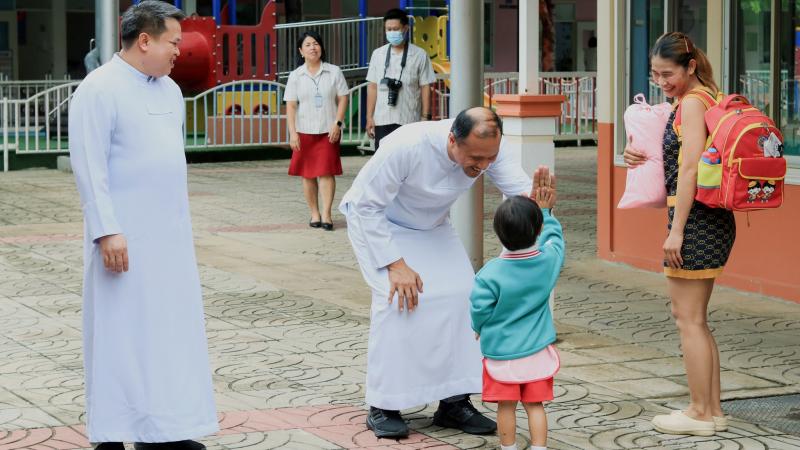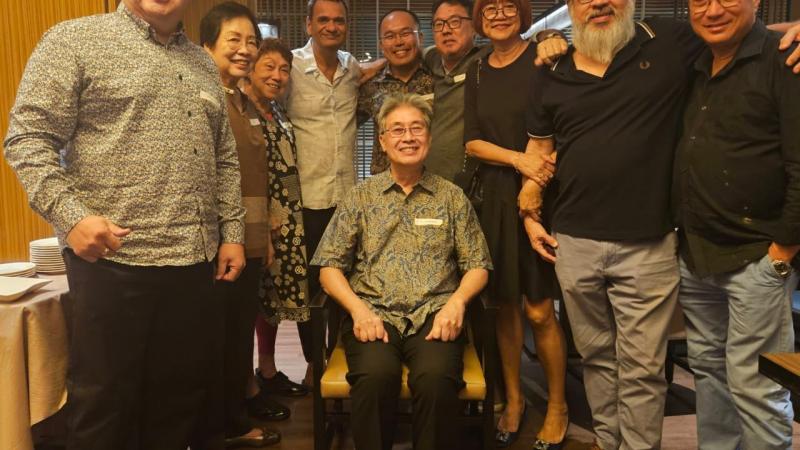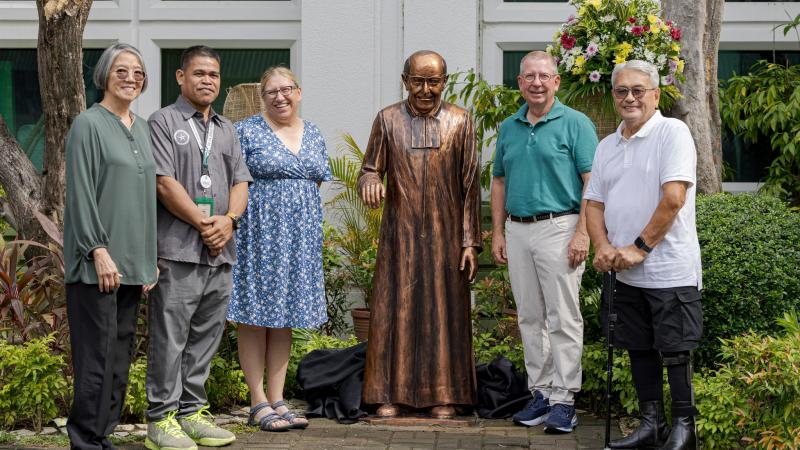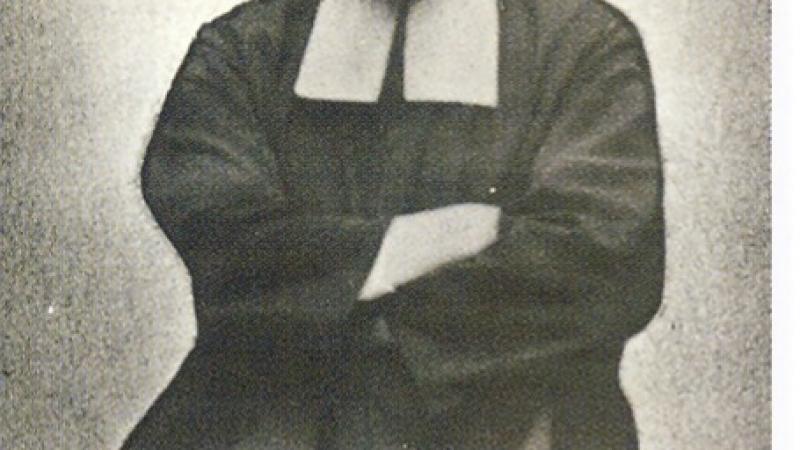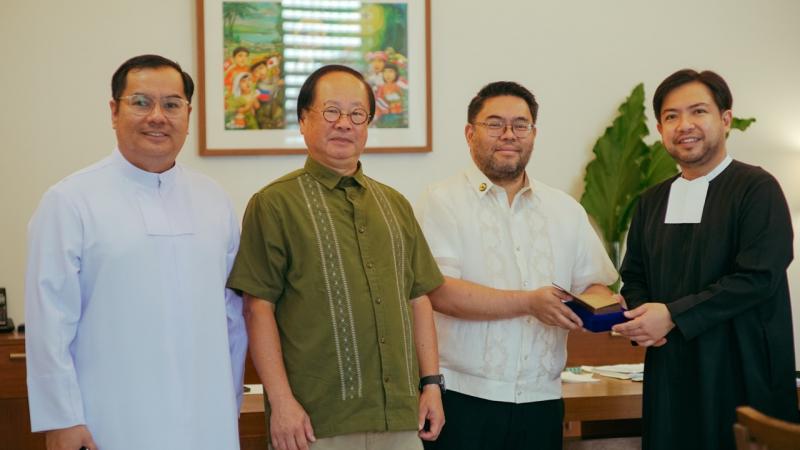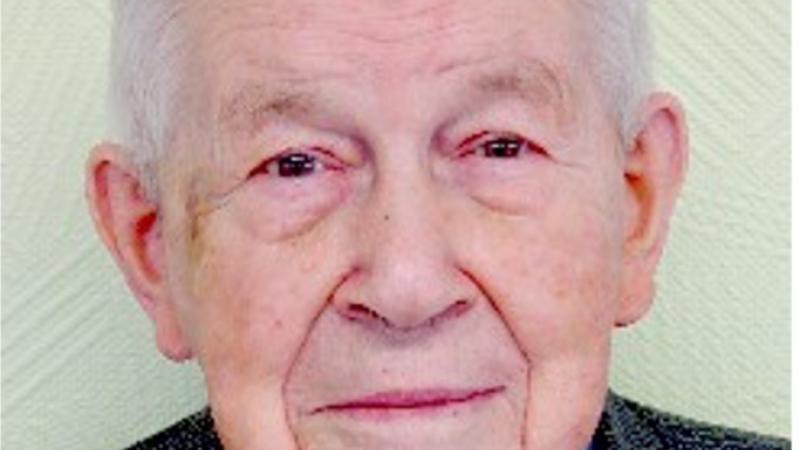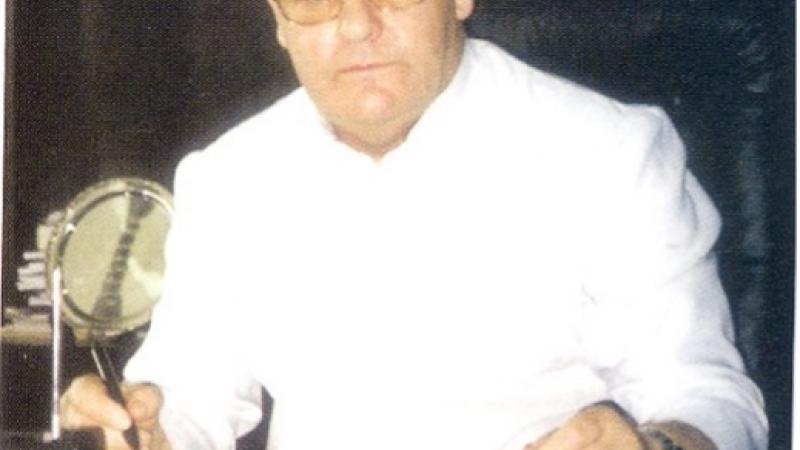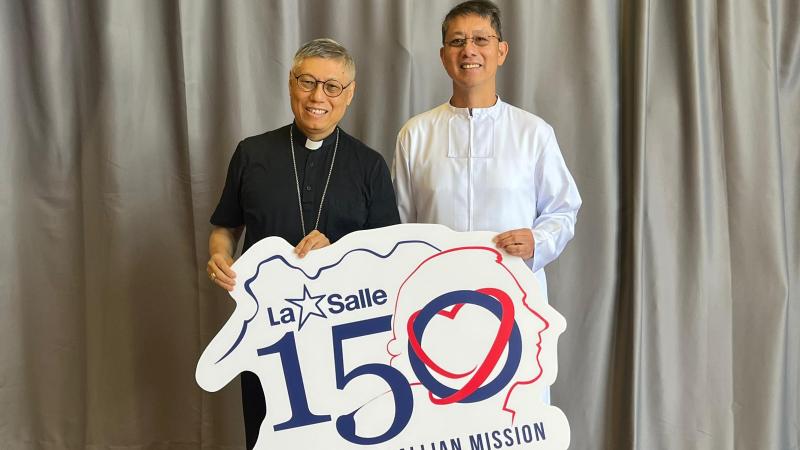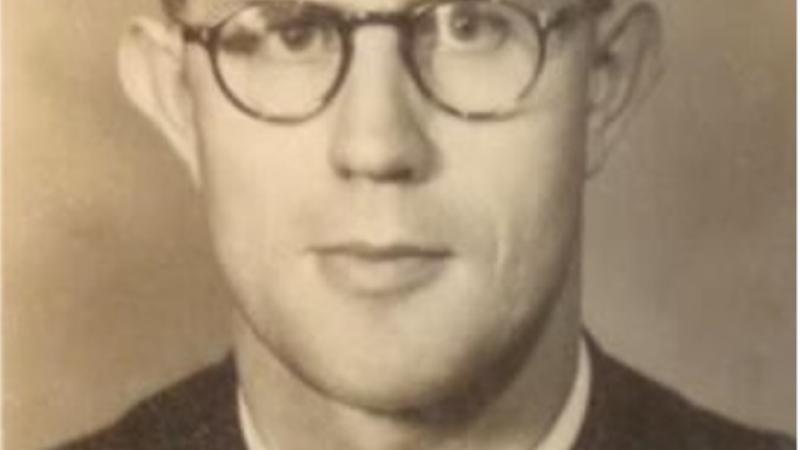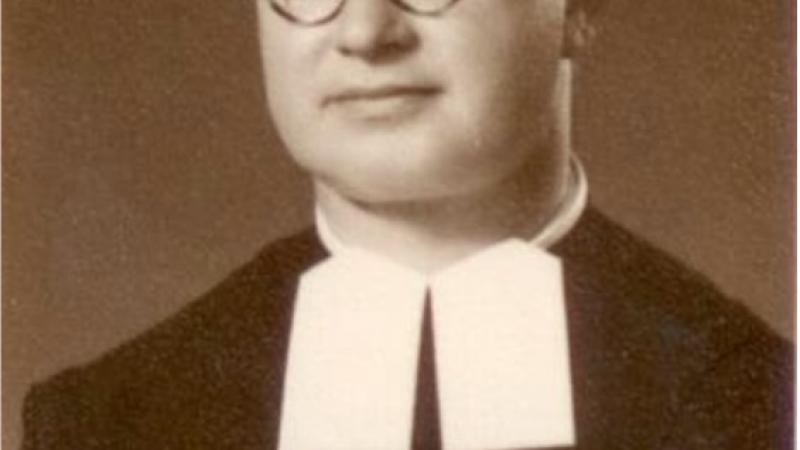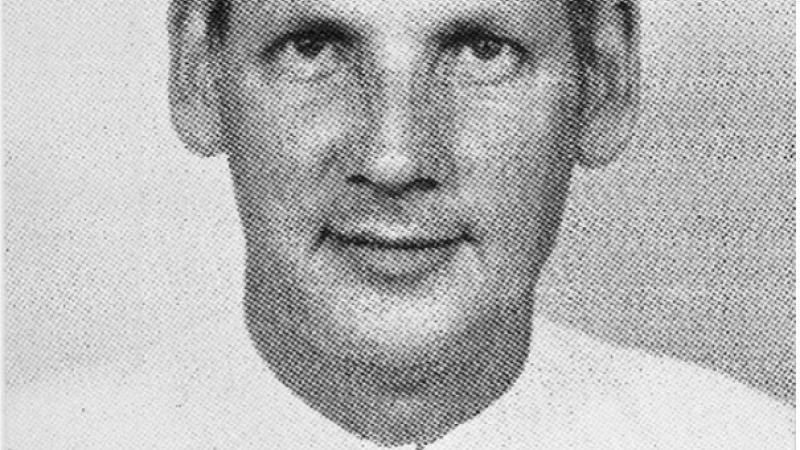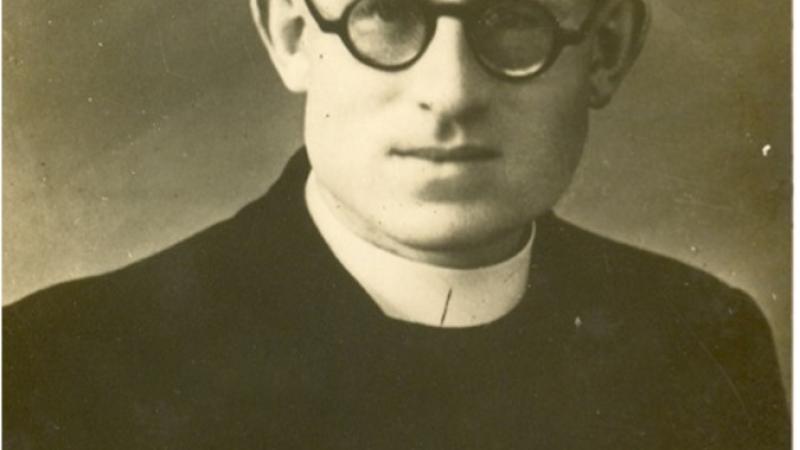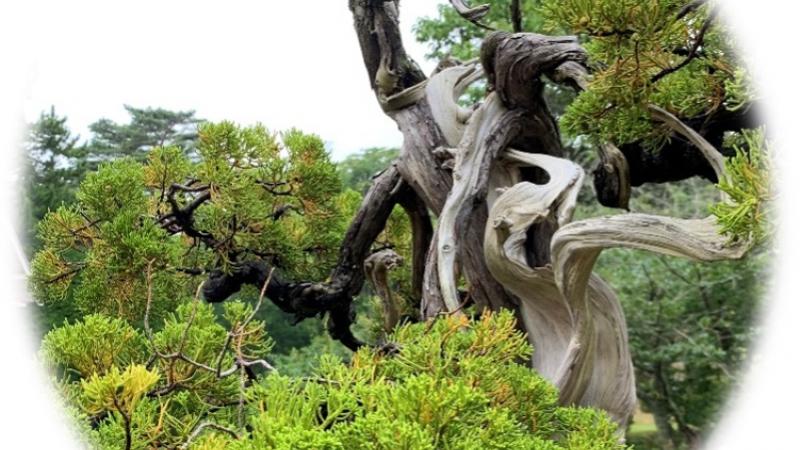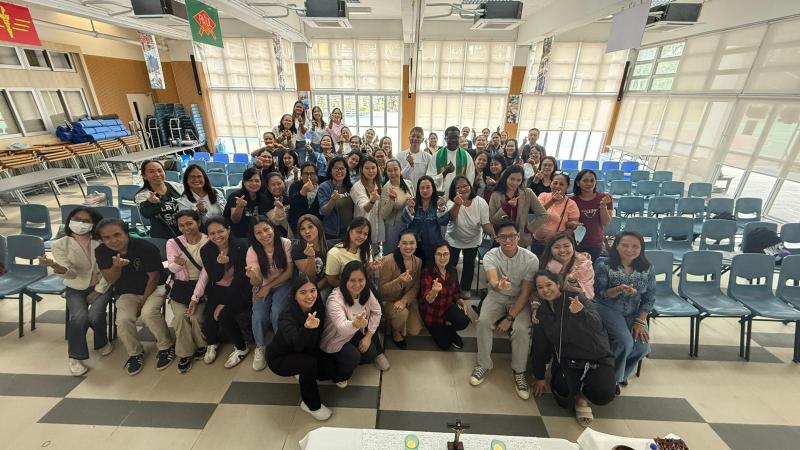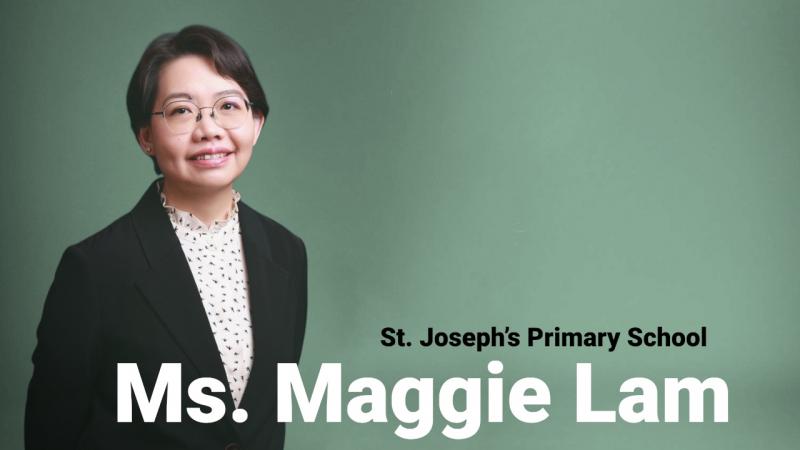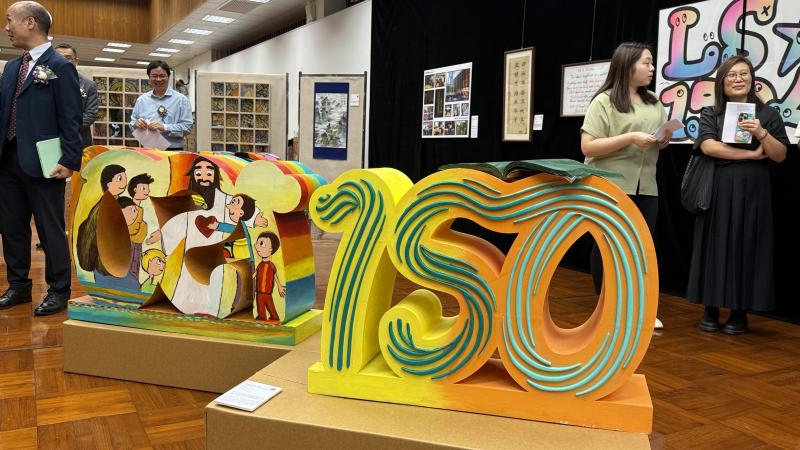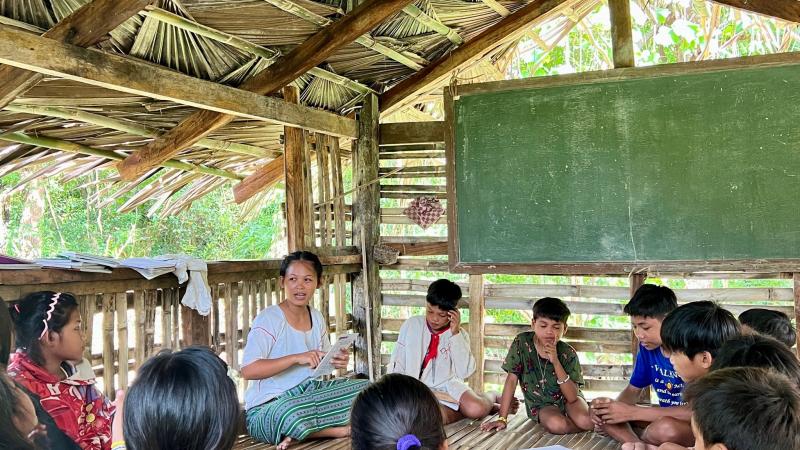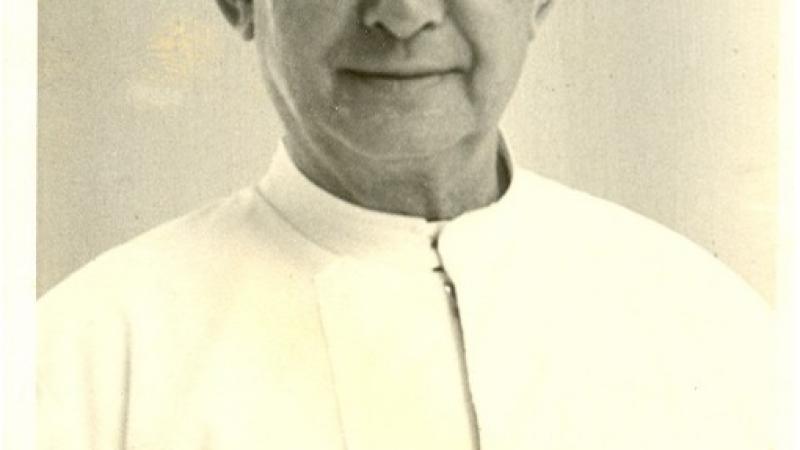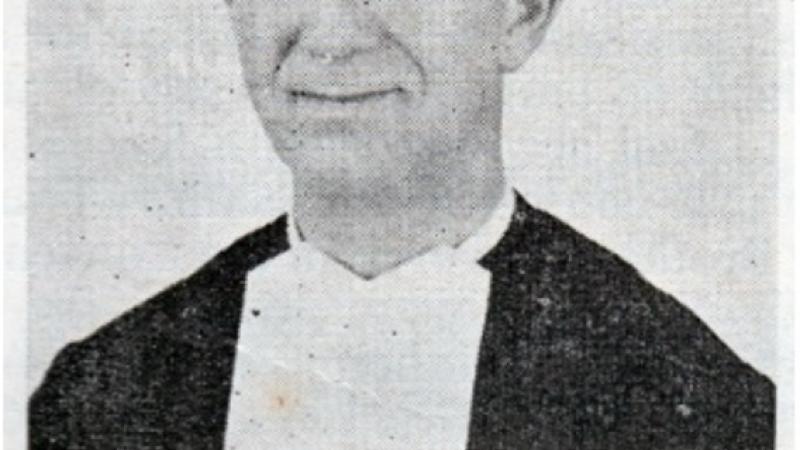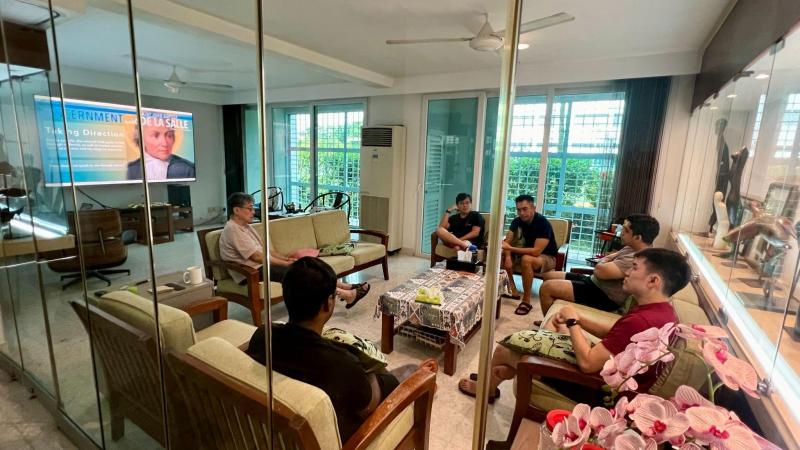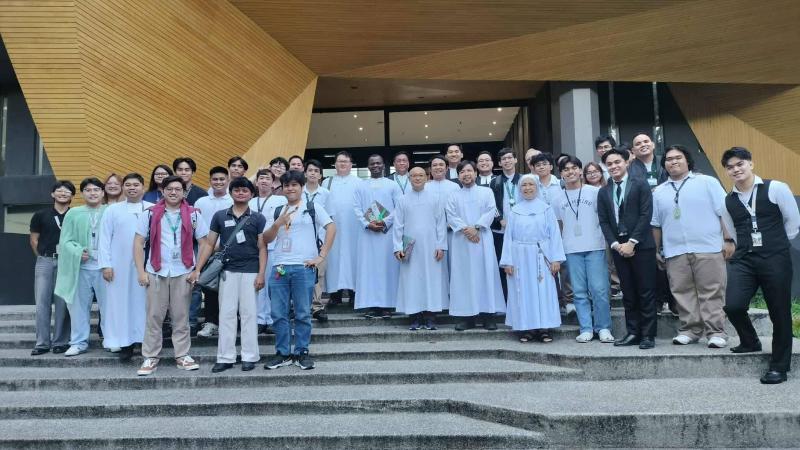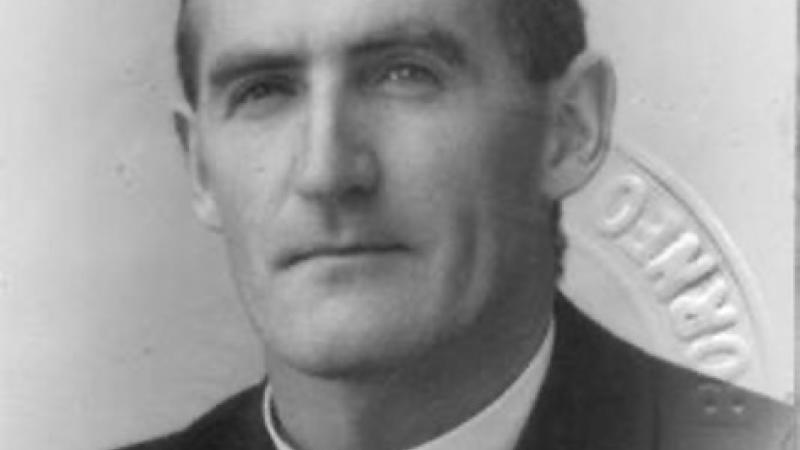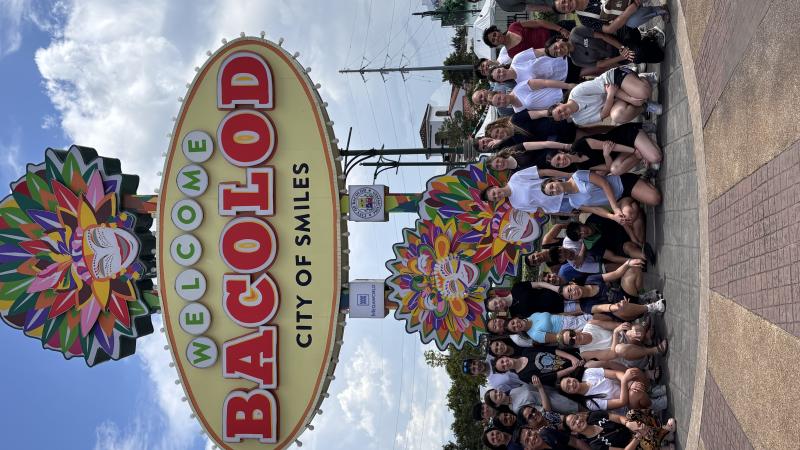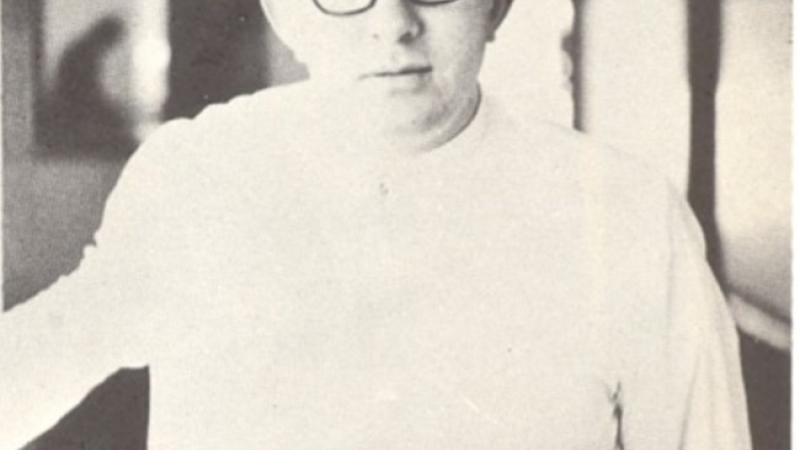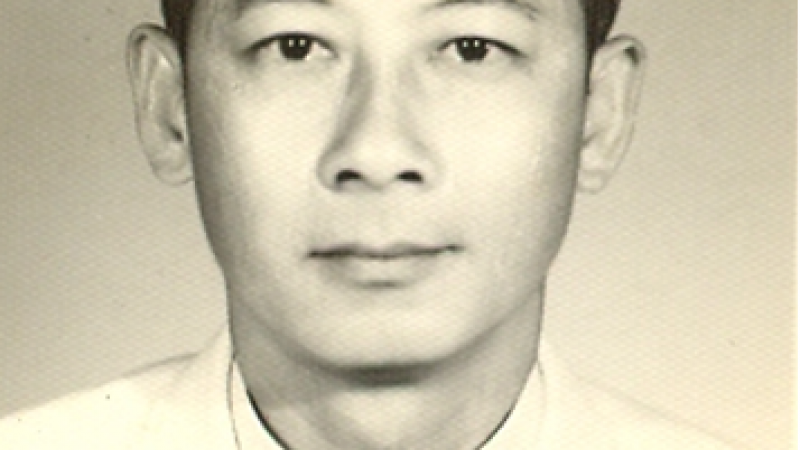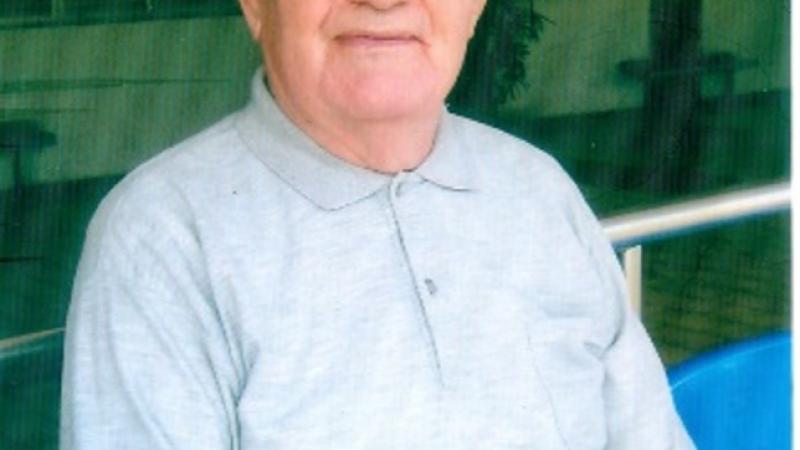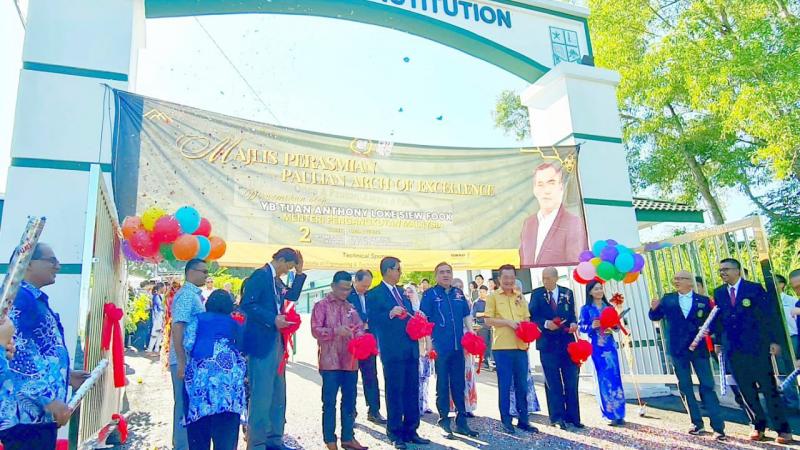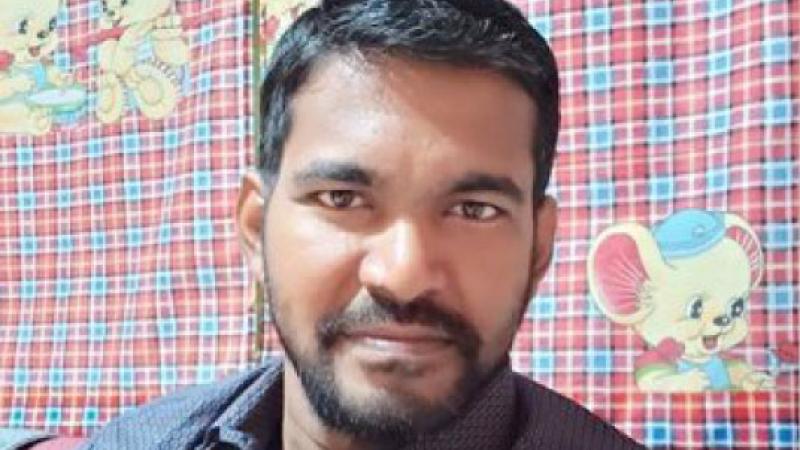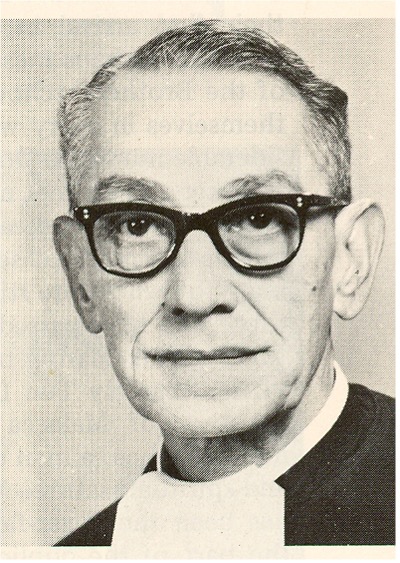
Originally published in The Gateway Issue No. 41 (September 2012)
Basile Dupont was born in France on the 23rd January 1885. He joined the Juniorate of the De La Salle Brothers at Nantes in 1899, entered the Novitiate and took the Brothers’ Habit in 1900 and received the name Brother Honorius. He completed his initial further studies at the La Salle Training College, Nantes, in 1903. He also took out a Teachers’ Diploma from Rennes University.
He must have had missionary blood in his veins because in 1905 we find him en route to Ceylon (Sri Lanka) to begin his lifelong commitment to missionary life. We are fortunate that we have his personal account about his early days in the East. The self-deprecating humour of the man is plainly seen.
“I bade adieu to good old ‘Oceanien’ which had brought me from Ceylon to Singapore, and here I was at St Joseph’s Institution, that ever-memorable January day in 1906. I had been through a six months’ initiation into the intricacies of the English idiom in Ceylon, but the course had not been an intensive one.
I felt awed by the gigantic proportions of St Joseph’s Institution; and Brother Director Michael, an American, had to be known to be truly appreciated. As ill luck would have it, that very afternoon, I went all on my own, and without permission, to the Convent, a stone’s throw away. In the evening I was fortunate enough to make the acquaintance of the Sub-Director, Brother Aimar, with whom, in later years, I was to spend glorious years in Hong Kong.
Good Brother Aimar was heading for our country house where he was to stay overnight. I asked to go with him and he naturally referred me to the Brother Director. It was then 6 p.m. and the Spiritual reading had begun. The large Community of 20 or so were around a long table under the gaslight. In fear and trepidation I went in on tip-toe, behind the Director. Just then he swung round, and before I could utter a single word, he demanded to know where I had been all afternoon and why I was late for the spiritual exercises. Every face wore a grin but like a greenhorn I read no signal and haltingly said that Brother Aimar was willing to bring me to the country house. The Director jumped up and asked how I dared, a young Brother just out of the Novitiate, to give scandal to his Community. With a withering look and in an indignant tone, he told me to go straightaway to the chapel and recite the seven penitential psalms!
That was the end of my country house pipe-dream. Instead of going to the chapel I went to Brother Aimar who had known what the result would be and he burst out into uncontrollable laughter. I was absolutely baffled. Later I learned that Brother Director Michael had enjoyed himself immensely on my account and that if I would pluck up sufficient courage to beard the lion in his den, he would appreciate it. I did so and discovered that ‘the lion’ was a very hoax. We remained fast friends thereafter.
At 3 o’clock on a cool January morning in 1906, the S.S. Kinta from Singapore cast anchor three miles from the muddy mouth of the Malacca River. The evening before, I had had a harrowing experience when, as a ‘padre’, I found myself seated next to the Captain at dinner. There was a goodly company, homely and kind. I was greatly perplexed at the array of cutlery - bread-, butter-, meat- and fish knives; and of course it was always the wrong ones I handled. I could see the smiles on every face; but the Captain was a good soul who had seen much in his long career and was shock-proof. He gently guided my faltering hands through the intricacies of the protocol.
Worse was soon to follow, when after dessert, glass bowls were handed round, for the guests to dip their fingers in. Nothing daunted, and already unnerved by previous mishaps, I seized my bowl with both hands and downed the contents at one gulp! I was a goner but the long-suffering Captain on my left and the lady on my right deftly created a diversion. The meal was over at last, and I beat a hasty retreat into my cabin.
In this frame of mind I was taken to the Brothers’ house in Church Lane and left all alone at 3.30 a.m. facing a closed door. Evidently I was not expected. Subdued fits of coughing issued from the most unprepossessing house I could imagine – a rickety shop-house known to be ‘haunted’ and now in full possession of rats, cockroaches, bugs and innumerable spirits of darkness. For obvious reasons it was dubbed ‘Rat Villa’. I knocked and waited; shouted out and waited again, but there was nothing stirring. In a louder tone I shouted, ‘Open, please! It’s a Brother from Singapore’. At last I heard the shuffling of feet and shutters were pushed open, as a sleepy voice growled, ‘Who’s there, this time of night?’ I stepped out into the street to reveal myself in full regalia. ‘Alright, I’m coming down’ and that was my first encounter with the famous Brother Matthew whose fame as a practical joker was common knowledge in the District.
Upstairs I made the acquaintance of the grand old Brother Dositheus, at the time the victim of violent spasms of asthma. To relieve this he would inhale strong vapours, and this was the cause of the fits of coughing I had heard. As there was an hour to go before the morning bell he gave me a long chair and a jug of water and advised me to lie down.
One bright January day in 1907 there was an array of bullock-carts in front of our house. The great occasion was our transfer to brand new premises. It was an imposing two-storeyed U shaped building facing the Straits of Malacca, in Banda Hiler Road. Ours was a rather humiliating exodus, for such was the quality of our belongings that, as in the case of St La Salle, we ran no risks of their being pilfered!
Our transfer to Banda Hilir marked a turning point in our history. We were now in a position to accommodate 400 boys on an ideal site. The more favourable living conditions certainly encouraged better work though it was not without a pang of regret that we left ‘Rat Villa.’
My first ‘Class Trouble’ was the product of over-zeal. Among the 50 boys I had in Standard 1 was a sprinkling of Muslims. They were a decent lot. The first morning they marched in wearing their ‘songkoks’ (headgear) I felt outraged and went on the warpath. After reading the ‘riot act’ I threatened to lay about with a stick unless they removed the obnoxious caps. That afternoon Brother Director received many complaints but he wisely calmed the troubled waters and drew attention to my youth, inexperience and well-meant zeal for discipline.
Another day the Director of Education himself, on a tour of inspection, unexpectedly strode into my class. He asked me what I did with the boys from nine to twelve. Assuming my best accent I answered, ‘The big boys make operations, while the others read’. Like the gentleman he was, he gently checked me, ‘You mean they do sums?’ I was completely upset. I had never heard the expression before, so I countered with, ‘No, sir. I make them count’. The big man turned to the Brother Director and said, ‘What part of France does this young Brother come from?’ Catastrophe! There, despite my desperate attempts at disguise, I stood exposed to the public gaze!
Another time, during a reading lesson, we came across the sentence, ‘The woodman fells the trees’. Seeing a chance to vindicate myself before the class, I solemnly declared there was a misprint and ‘fells’ should read ‘falls’. I had never seen ‘fell’ used as a transitive verb and insisted on their correcting the ‘wrong’ spelling in their reader. The next day came complaints from the parents, and once more I had to swallow the bitter pill.
I confronted the afternoon class with some composure. I began with Dictation, a sure subject. I had chosen a passage dealing with chemistry. The vocabulary was familiar. The passage began: ‘The chemist…’Unhesitatingly I blurted out; ‘The sheemist…’ I was halted by an uproar of protests and one of the class leaders said sharply, ‘In English we say ‘kemist’. That threw a damper on the other lessons and at 4 o’clock I promptly went to bed with high fever.
We come now to the year 1911. A new Brother Director, Edward Lewis, had taken over. It was about this time that Malacca experienced its first attack by a swarm of locusts. They made their unwelcome appearance on a Saturday night at about six and left the following morning. Never did we have such dreaded visitors. Attracted by the many lights in the school they invaded the premises: study rooms, dining rooms, the dormitory and oratory, playing havoc with everything and leaving an unsightly mess everywhere.
The field was alive with them to a depth of three to four inches. The trees were actually bending under the weight of the loathsome creatures. By the time they had done their work of destruction, there was not a blade of grass on the ground, not a leaf on the gaunt, desolate trees. Instead there was the sickening stench of millions of crushed bodies which lay in mounds in the sweltering heat of the tropical sun.
In face of the ever increasing demand for education, we had perforce to consider the addition of a new wing to St Francis Institution. I was invited by Brother Director to be his companion on a begging tour. Our purpose was to secure funds to enable us to put up the present boarders’ dormitory. A concert marked the formal opening in 1914. Meanwhile I had gone on leave to attend the Second Novitiate and while on board I had a very pleasant dream during which I heard echoes of the concert wafted across the Indian Ocean.
On my return in 1915, I was transferred to Kuala Lumpur. I returned to Malacca only in 1933 and at year’s end I was sorry to leave on transfer to Hong Kong.”
So ends the interesting reminiscences. One of his Malacca old boys says that Brother Honorius was the most unforgettable character, “short, plump, forever bubbling with humour. He was never a dull teacher and always unbiased.”
From 1922 to 1932, Brother Honorius found himself back in St. Joseph’s Institution, Singapore. He was in his element, putting on school concerts and plays. As usual, something that couldn't go wrong just did go wrong for the heck of it [in line with Murphy's Law] and at the worst possible moment. Where he was counting on glory he came unstuck! But he took it all in good part.
His arrival in Hong Kong took place on the 8th February 1934 and he was assigned to teach in La Salle College, Kowloon. Although sad to leave Malacca after so many years, he came to regard Hong Kong as ‘Paradise Regained.’ He straightaway entered into the life of the school. His flair for organizing dramatic productions was soon evident and Brother Cassian was able to write in his diary how Brother Honorius had directed a stage production for the Feast of St La Salle in 1935 with a “splendid display of youthful talent.”
He was Form Master of the Matriculation Class, organizer of dramatics and spiritual director of the Sodality of the Blessed Virgin. His lessons continued to be well taught and inspiring.
Of course the humourous incidents associated with his name continued. The old boys would often recall the day he had to go on stage and say a few words. On stage, he tripped and fell, much to the amusement of the boys. It was not every day they would see a Brother, in full regalia, falling on stage. Brother Honorius took it all in good part.
Some people believe that Brother Honorius wrote the words of the La Salle College song, much beloved by students and old boys. There is, however, strong competition and we will have to bide our time before final pronouncement.
After the outbreak of war, Brother Honorius was interned with the other Brothers until February 1942. As the Community had no means of livelihood he left, together with Brother Aimar, for French Indo-China (Vietnam) on the 1st March 1942. For four and a half years he taught English in the La Salle College, Saigon. He returned to Hong Kong in September 1946 and left for a holiday home in the summer of 1947. Before he left, the old boys hosted a dinner in his honour. While at home he received instructions to return to the East - back to Malacca! This was in 1948.
By now he was 63 years old but he continued to teach for some time and only left Malacca in 1957, finally retiring to St Patrick’s School, Singapore, where he died on the 20th September 1963.
Mention Brother Honorius and those who knew him recall his gentle, gifted, humourous and dynamic personality. He was of a sunny disposition. He was forever smiling.

